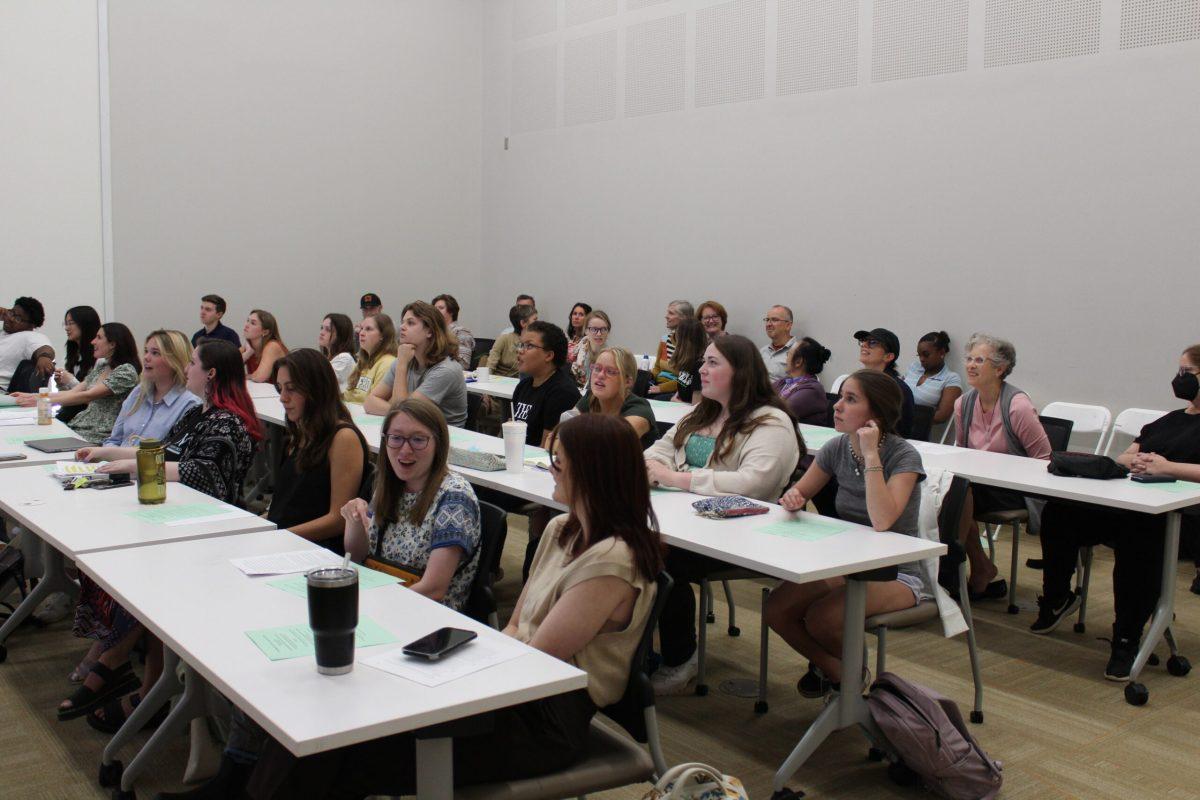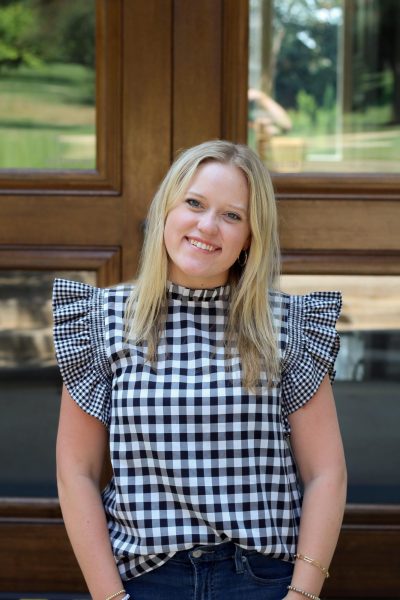The annual conference on gender was held by the Gender Studies program in the Rosalind Sallenger Richardson Center for the Arts on April 18.
Discussing the issues of gender and sexuality is never a light task. Students at Wofford, however, are typically willing and ready to attack issues regarding gender and sexuality.
Each year, the Gender Studies Program at Wofford holds a conference on gender to highlight research conducted by students on the topic of gender and sexuality. This year, eight students presented their faculty-advised research examining issues and theories of gender and sexuality from the last year.
The first Wofford Conference on Gender was held in 2002. This is the second year Carey Voeller, associate professor of English and co-chair of Gender Studies Program, has organized the event.
Although the Gender Studies Program is an effective way to develop awareness on sexuality and gender, presenters do not have to be involved in the gender studies program to present research at the conference on gender.
The program was designed to be interdisciplinary and involves courses in English, sociology and anthropology, philosophy, religion and art history. Seniors in the program complete a capstone project that intertwines two subjects.
Among the presenters were Ally Branzuela ‘23, Madeline Brewer ‘23, Willow Conley ‘25, Jacqueline Hansen ‘24, Erin Lachance ‘23, Lizzie Richards ‘23 and Lauren Strange ‘24. Sociology and anthropology, English, art history and biology majors were all represented at this year’s conference.
Faculty advisors included Carey Voeller, Professor of Chinese Li Quin Kinnison, Assistant Professor of Art History Gillian Young, Reeves Family Professor in Humanities Natalie Grinnell, Associate Professor of English John Ware, Associate Professor and Chair of English Julie Sexeny and Chapman Family Professor of Humanities Karen Goodchild.
Strange presented her final paper for one of Carey Voeller’s English courses in the Spring 2022. Because her paper focused on femininity and masculinity in Frank Norris’s “McTeague,” Voeller encouraged her to enter her paper to be considered for the 2023 Conference on Gender.
“I wrote about how the author, Frank Norris, situated male and female roles in relationships and how he defines masculinity and femininity between characters,” Strange said. “I talked about the main character and his wife Trina. He has a pet canary, and the canary illustrates the ideal femininity, as it is locked in its cage and at the mercy of the man in this story.”
Branzuela, a biology major, discussed the difference between Eastern and Western beauty standards and the impact that these beauty standards have on Asian-American women.
Hansen’s and Lachance’s research played off of each other, as both looked into the portrayal of women in visual media, Hansen with horror movies and Lachane with music videos.
Gender is a complex topic. With that notion, a wide array of groups need to be represented to provide a more holistic view of how issues of gender and sexuality impact society. However, at this year’s Conference on Gender, there was an apparent emphasis on female students researching issues of portrayals of women in various forms of media.
Women tend to be more inclined to research issues regarding gender studies.
However, if no male identifying students present their ideas and research at the conference, is that really an accurate representation of gender and sexuality in the Wofford student body and in society as a whole?
According to Voeller, it has always been an issue to get male students interested in discussing gender issues, even though they are just as affected by gender as female students are.
“The number one problem with gender studies is trying to get guys to care about it,” Voeller said.
According to Voeller, this year’s conference was historically less diverse compared to other years.
“Five or six years ago, we had more people who identified as men who presented at the conferences,” Voeller said. “Last year, it seemed that there was more of a racial diversity.”
Moving forward, the conference hopes to expand the diversity of students participating, in terms of race, gender identity and sexuality. The barrier to this, however, is that a diverse group of students needs to already be interested in these topics and motivated to research them.
“The plan would definitely be to get more men involved and have more racial diversity, but the presenters do reflect the interest and the motivation of the students,” Voeller said.
To present in next year’s conference on gender, students can contact Voeller if they write a paper or complete research discussing topics on gender and sexuality during fall 2023 or Interim 2024.
Students can officially submit their work with a link that will be released in the beginning of spring 2024 semester.

































